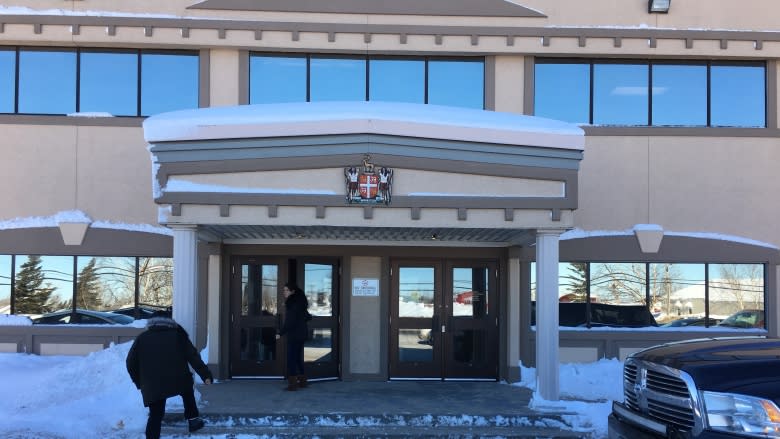Child luring charges against former Hopedale mountie stayed
The child luring charges against a former Labrador RCMP officer have been stayed, after a provincial court judge ruled it took an unreasonable amount of time for the accused to go to trial.
In a ruling Feb. 17, provincial court Judge John Joy agreed that Ian Kaulback's charter rights had been violated because of the long wait.
Kaulback was a member of the Hopedale RCMP detachment when he was charged with child luring on Feb. 9, 2013.
The investigation was handed over to the Royal Newfoundland Constabulary, which took 10 months to analyze various electronic devices and file a report.
Kaulback was charged with a second count of child luring as a result on July 9, 2014 — a year after he had pleaded not guilty to the initial charge.
According to court documents, Kaulback spent the better part of a year trying to secure a lawyer before turning to the Legal Aid Commission for help.
Eventually, a trial date was set for November 2015, but Judge Joy wrote that a more realistic start time was in June 2016. There was never a preliminary inquiry.
On Oct. 13, 2015, the defence filed an application for a stay of proceedings, citing an unreasonable amount of time to go to trial, calling that a breach of Kaulback's charter rights.
Labrador courts challenged
In his Feb. 17 decision, Joy agreed to the stay, saying the overall estimated time for the case to conclude was 33 months — an estimate he called overly optimistic, with a realistic timeline of 41 months total.
Given the seriousness of child luring charges, Joy said there is "considerable public interest" in seeing such cases go to trial in a timely manner.
He pointed to the Jordan decision from the Supreme Court of Canada, which said trials should be heard within 30 months, or 18 months if there is no preliminary inquiry.
Joy said there is a "formidable" caseload for Legal Aid in Labrador, a region which he said has a number of specific challenges paired with the sheer volume of cases.
Day-to-day delays
Also, Joy said the case provides examples of inadequate institutional resources in the court system.
A civilian investigator for the RNC was working on obtaining digital forensics in the Kaulback case continuously for eight months, while also answering requests to obtain digital information on other cases.
"The obvious lesson here is that the government must provide an adequate number of properly trained and experienced experts in this field with the necessary equipment and offices in order to complete this type of work in a shorter space of time," Joy wrote.
Joy wrote that delays in getting the computer forensic results, including Facebook evidence, were not exceptional circumstances, but rather a day-to-day issue for the Crown because of a failure to hire trained and experienced technicians.
Joy said the technicians and investigating officers involved "performed their duties in an exemplary fashion, but they could only operate within the limited scope of the resources of their respective offices."





